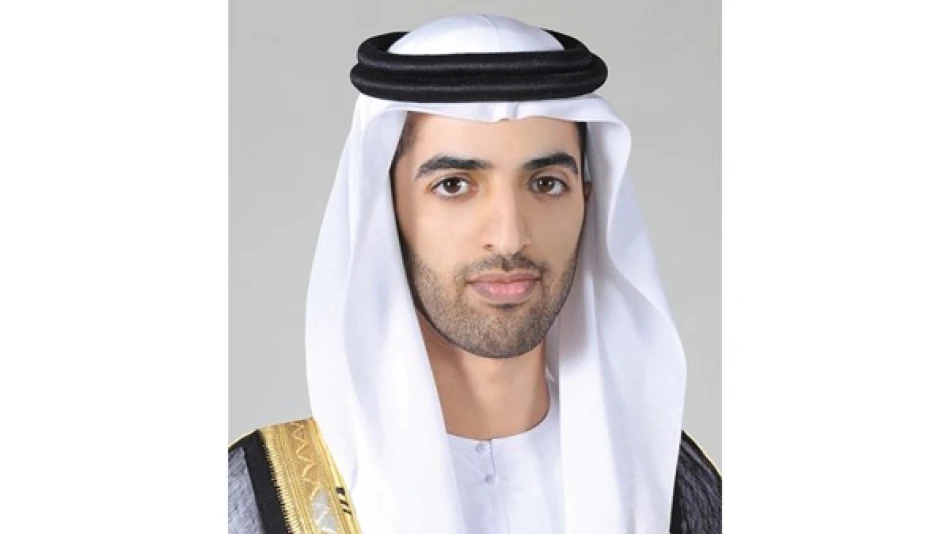
Ras Al Khaimah Crown Prince Issues Executive Council Reshuffling Decree
Ras Al Khaimah Restructures Key Committees to Sharpen Economic Competitiveness
Ras Al Khaimah's Crown Prince has reorganized the emirate's specialized government committees, placing economic development and environmental oversight under streamlined leadership structures. The move signals RAK's intent to accelerate decision-making processes and strengthen its position as a competitive business hub within the UAE's increasingly diversified economy.
Strategic Committee Overhaul Targets Efficiency
Sheikh Mohammed bin Saud bin Saqr Al Qasimi, Crown Prince of Ras Al Khaimah and Chairman of the Executive Council, issued Decision No. 10 of 2025 to restructure the emirate's specialized committees. The reorganization affects two critical areas: economic development and environmental health and safety oversight.
The restructured Economic Development Committee will be chaired by the Director General of the Department of Economic Development, with membership including senior executives from RAK's Chamber of Commerce and Industry, Customs Department, Economic Zones Authority, and Investment and Development Office. This consolidation brings key stakeholders under one coordinating body, potentially reducing bureaucratic delays that often hamper business licensing and investment approvals.
Environmental Governance Gets New Structure
The Environment, Health and Safety Committee has been reconstituted under the leadership of the Director General of the Environment Protection and Development Authority. The committee now includes representatives from municipal services, public services, police command, and civil defense—a comprehensive approach that reflects growing emphasis on sustainable development practices.
Positioning RAK in the UAE's Economic Landscape
This administrative restructuring comes as UAE emirates compete intensively for foreign investment and business relocations. While Dubai dominates financial services and Abu Dhabi controls energy sectors, RAK has carved out niches in manufacturing, logistics, and tourism. The emirate's Jebel Ali-adjacent location and lower operational costs have attracted companies seeking alternatives to Dubai's premium market.
The committee restructuring appears designed to capitalize on these advantages by streamlining approval processes. RAK's Economic Zones Authority has been particularly aggressive in attracting international businesses, offering 100% foreign ownership and tax incentives that rival Singapore and Hong Kong's frameworks.
Investor and Market Implications
For businesses considering UAE market entry, RAK's administrative efficiency improvements could prove significant. The consolidated Economic Development Committee structure should theoretically reduce the time required for licensing, permits, and regulatory approvals—critical factors for companies evaluating operational locations.
The timing suggests strategic intent. As global businesses reassess supply chains and regional headquarters following recent geopolitical shifts, UAE emirates are positioning themselves to capture relocating operations. RAK's lower cost structure, combined with improved administrative efficiency, could attract mid-market companies that find Dubai's costs prohibitive.
Governance Modernization Reflects Broader Trends
The emphasis on "good governance" and sustainable development aligns with broader UAE federal initiatives and international ESG standards that increasingly influence investment decisions. The restructured environmental committee's comprehensive mandate—spanning municipal services, safety, and development—indicates recognition that environmental compliance is becoming a business competitiveness factor rather than merely a regulatory requirement.
This approach mirrors successful models in Singapore and parts of the EU, where integrated environmental and economic planning has attracted businesses seeking regulatory clarity and long-term operational stability. RAK's administrative restructuring suggests the emirate is positioning itself for the next phase of regional economic competition, where efficiency and sustainability credentials will likely determine investment flows.
Most Viewed News

 Layla Al Mansoori
Layla Al Mansoori






